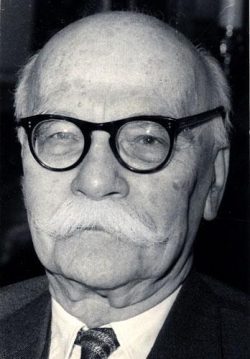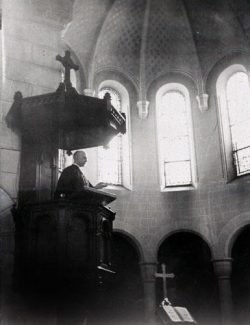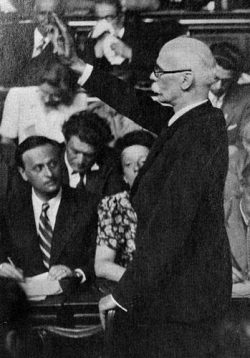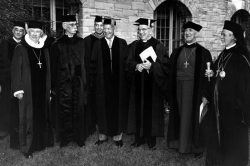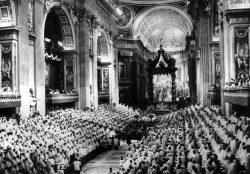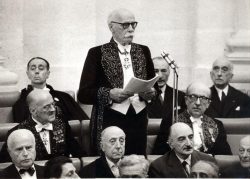Marc Boegner (1881-1970)
Marc Boegner was a pastor with outstanding charisma, and a prominent figure in contemporary French Protestantism. He also acknowledged its various tendencies, and very early accepted big responsibilities. During the 1939-1945 war he fought against discrimination notably towards the Jews in the name of the French Protestant Federation. Throughout his life his “ecumenical demand” made him a pioneer in Christian churches unification strivings.
His studies and first parish
Marc Boegner was born in Epinal in 1881. His father Paul Boegner and his mother Jenny Fallot were both of Alsacian origin but in the reformed tradition.
Owing to the many different places his father was appointed to as an administrator, he went to secondary school in Orléans and then in Paris.
He was very much influenced by his uncle, the pastor Tommy Fallot (1844-1904), and when he was not allowed in the Ecole Navale because of his bad eyesight, he chose to study theology after what he called his “conversion”. He studied at the protestant theology faculty in Paris, except in 1901-1902 when he did his military service. After having submitted his thesis on Calvin’s catechisms in 1905 and consecrated, he was appointed to the Aouste-sur-Sye parish in the Drôme department, where Tommy Fallot had been pastor for nine years until he died.
In the modest country parish, Marc Boegner initiated a ministry based on being humble, listening to the people and their ideas, and uniting them in the same faith.
The Mission House and Passy parish
In 1911, he was appointed professor with the Mission House in Paris. He then realised that a link had to be created between the mission and the unified church. In 1912 he met John Mott (1855-1965) a Baptist American layman who created the Universal Federation of Christian Students Associations. He was to win the Nobel Peace Prize in 1964, and launched the ecumenical movement. Boegner was drafted in Paris as a head-nurse as early as August 1914, but never stopped presiding over worshipping, supporting those who asked for help, and was deeply torn between “the eager hope in victory and the obligation to refuse hatred.”
In October 1918, he was assigned to the Parisian parish Passy-Annonciation where he remained until he died in 1953.
He turned this parish torn between different theological and political ideas, which then was frequent in Protestantism, into an influential church. He was greatly helped by pastor Pierre Maury who arrived in 1934. The latter was an outstanding theologian who was to be “the friend, the brother, the confidant of all his parochial worries.”
The Federation of Protestantism
In 1928, Marc Boegner started a series of radio-broadcast Lent lectures which broadened his audience beyond his parish. But his main worry then was to make the gathering of Protestantism come true, and he devoted all his energy to creating a frame in which Reformed, Lutheran and Evangelical Churches could share the same faith, while keeping their specific theological and ecclesiastical tenets.
In 1929, in Marseilles the Assembly of the French Protestant Federation decided to put together several Unions of Churches and protestant associations to be housed at 47 rue de Clichy in Paris, thus creating as a sort of institution.
Marc Bœgner was elected president of the French Protestant Federation (FPF), which he was until 1961.
Within the Federation, the Reformed Churches still had to be unified. The controversies between the orthodox, who stuck up for ancient traditions, and the liberals, who understood the evolution of mentalities, were being settled.
In 1938 during the Assembly in Lyon, the unity came about with a common Proclamation of Faith, and Marc Boegner was elected President of the National Council of the French Reformed Church (ERF).
He then held the two highest positions in French Protestantism.
The war between 1940 and 1945
In June 1940, after the armistice, the Protestant Federation wished his president would stay in the free zone. So Marc Boegner settled in Nîmes where the protestant tradition still stood firm.
In January 1941, he was assigned to the National Council created by Field-Marshal Pétain as the representative of protestant churches, where he said he could observe “attending policy”.
He often went to Vichy to advocate the fate of people who had been displaced or assembled in internment camps in Drancy (near Paris) or Gurs (Pyrénnées-Atlantiques department) and later of the Jews.
These protests in the name of the Reformed Church and the Protestant Federation were often preceded by meetings with Cardinal Gerlier, the Archbishop of Lyon, and exchanges with Chief Rabbi Schwartz. Marc Boegner would often write letters to Field-Marshal Pétain, which were often read during Sunday worshipping.
In the months before the Liberation, he often spoke in favour of the freeing of pastors, namely Trocmé, Theiss, de Pury, Roulet arrested because of resistance acts or help to harassed Jews.
After the war Marc Boegner, with the permission of the Protestant Federation, accepted to be called as a defence witness at Field-Marshal Pétain’s trial.
The artisan of the ecumenism
No sooner was Marc Boegner appointed that he suffered from the scandal of missionary competition and felt the need for Christians to come closer. He took part in Christian Students Associations to promote the ecumenical movement, and was deeply involved in it.
In the 1930s, notably in Fanö -Denmark in 1934 – and Edinburgh – Scotland in 1937 – or Utrecht – Netherlands in 1938 – both international leaders of the ecumenical movement, i.e. “Life and Work” deeply engrained in Social Christianism and “Faith and Order” more involved in theology, tried to get closer by “preparing an Ecumenical Council” under protestant and orthodox guidance.
Marc Bœgner was the representative of the French Protestant Federation and played an increasingly important role.
World War II delayed the creation of the World Council of Churches (WCC) eventually founded during the Amsterdam Assembly in 1948. Marc Boegner was elected co-president of the Council of the Wise along with four other foreign figures, as the representative of French Protestantism.
At the Evanston -United-States in 1954 – and New Delhi – India in 1961 – assemblies which he attended, the ecumenical movement promoted the links between Churches taking part, and interaction to further theological searching.
Despite the personal involvement of some catholic personalities in a dialogue with the Protestants, the Catholic Church did not show any sign of getting closer. It considered that severed Churches themselves should initiate the “great come back”.
Observer at Vatican II Council
In 1962 Pope John XXIII at the Vatican II Council was to “launch a movement”. In 1963 Paul VI appointed Cardinal Béa president of a secretariat for the Unity of Christians.
Marc Boegner took part in the Third and fourth Council sessions as an observer.
Eventually the considerable work of theologians of all confessions would enable all Christians to share the ecumenical demand for which he worked so hard.
An Academician
Marc Boegner was elected member of the Political and Moral Science Academy in 1947, and then of the French Academy in 1963.
In 1988 he was called “Righteous among the Nations”.
Bibliography
- Books
- BOEGNER Marc, L’Exigence œcuménique, Souvenirs et perspectives, Albin Michel, Paris, 1968, Volume 1
- BOEGNER Philippe, Les carnets du pasteur Boegner, Fayard, Paris, 1992
- CABANEL Patrick et ENCREVE André , Dictionnaire biographique des protestants français, de 1787 à nos jours, Editions de Paris - Max Chaleil, Paris, 2015, Tome 1 : A-C
- MEHL Roger, Marc Boegner, une humble grandeur, Plon, Paris, 1987
Associated notes
-

The French Protestant Federation (FPF)
Since 1905, the Fédération protestante de France has included most Protestant Churches and Associations. Most branches of Protestantism which have grown up since the Reformation are represented. -

Tommy Fallot (1844-1904)
Since his youth, Tommy Fallot had always been shocked by the protestant Church’s lack of interest in social issues (perhaps this may have been due to the fact that at... -
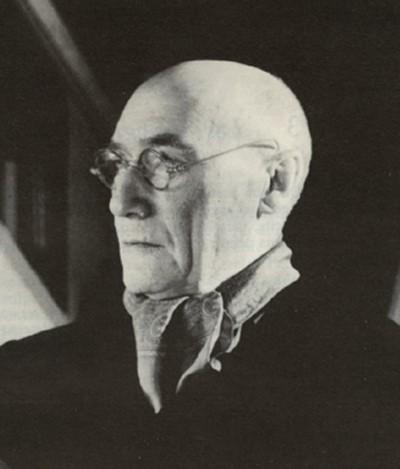
André Gide (1869-1951)
André Gide was one of the most well-known writers of the first half of the XXth century. He was born into a protestant family and was brought up in an... -

Charles Gide (1847-1932)
Charles Gide was a theorist of social economy and a leading figure in the French economic cooperative movement and Christian socialism. A spirit of solidarity pervades all his work. -
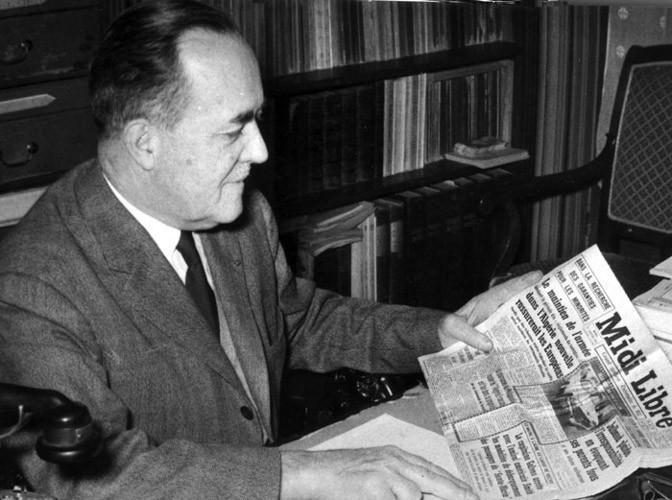
Charles Westphal (1896-1972)
Charles Westphal was a pastor of the Eglise Réformée de France (he was a man of great discernment and sound judgement). Not only will he be remembered as someone whose... -
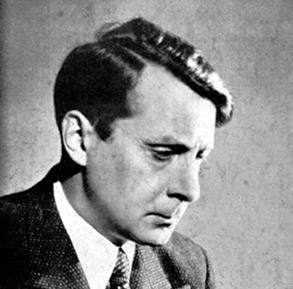
Charles Munch (1891-1968)
Charles Munch was a great French conductor. -
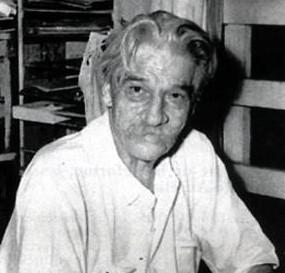
Albert Schweitzer (1875-1965)
Albert Schweitzer was born in Kayserberg, in Alsace. His father was a pastor and very fond of music. He received his secondary education in Mulhouse. He was an exceptionally gifted...

